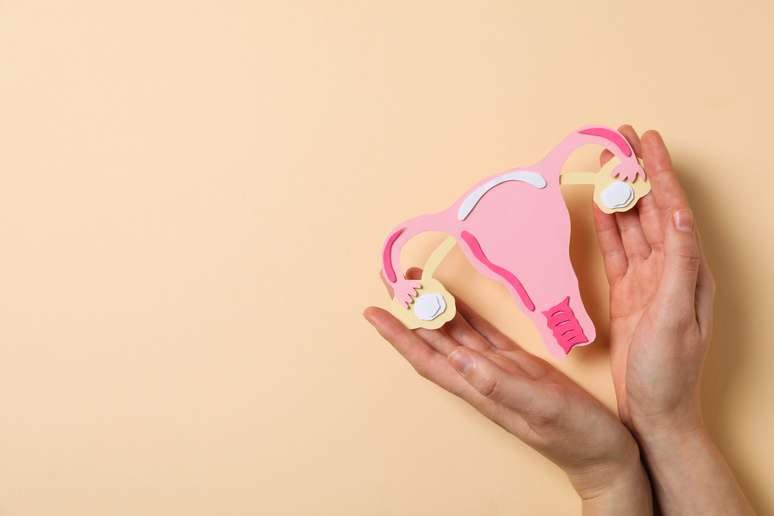Find out what you need to know about the contraceptive method and resolve all your doubts once and for all
The hormonal spiral has become an increasingly discussed and researched topic by women looking for an alternative contraceptive method to the pill. This is mainly due to its high effectiveness rate: 99.8%. For comparison purposes, tubal ligation, an irreversible method that ties the tubes, is 99.5% effective.
What is an IUD?
The IUD is an intrauterine device used to make it difficult for sperm to fertilize the egg. There are two main models of these devices: the copper IUD, which contains no hormones, and the hormonal IUD (also called IUS), which releases small amounts of progesterone in a localized manner. The choice between them depends on the individual needs and expectations of the patient and is recommended depending on the specific situation.
But today let’s talk about the hormonal IUD. Marina Levy and Leonardo Valladão, gynecologists and obstetricians of Birth with Love Clinicit will help us clarify any doubts about the method.
How does it work?
1st: It releases levonorgestrel (a progesterone) into the intrauterine environment, preventing the endometrium (inner layer of the uterus) from proliferating and becoming a favorable environment for the establishment of an embryo;
2nd: It increases the thickening of mucus and reduces the movement of the cilia in the tubes, also preventing the meeting between sperm and eggs;
3rd: The progesterone released from it is absorbed in small quantities into the bloodstream and can inhibit the menstrual cycle and ovulation in some cycles.
How long does the hormonal spiral last?
“The duration of the release of progesterone from the intrauterine device lasts a maximum of five years, after which it must be removed,” says the doctor.
Are there any side effects associated with using an IUD?
Yes, there are common reactions to IUD implantation. “The main ones are those related to the use of isolated progestins, such as swelling, acne, increased hair and irregular vaginal bleeding,” explains Marina. But there’s no need to worry and there are no rules, okay? You may not hear any.
Is it possible to feel the IUD during sex?
According to Valladão there are cases where this can happen, yes, but this is a sign that a new medical evaluation is necessary. “If the IUD is malpositioned, the partner may possibly feel the IUD during penetration. In that case, the patient should seek medical evaluation to determine whether the IUD is malpositioned,” he advises.
10 Benefits of the Hormonal IUD
- Effective contraception;
- Long duration of contraception;
- Simple and outpatient insertion;
- Low failure rate;
- Control of the menstrual cycle;
- Reduction of menstrual bleeding;
- Reduction in the rate of anemia due to increased menstrual bleeding;
- Reduce the cost of long-term contraception;
- Control of adenomyosis;
- Control of endometriosis. BOX
Other important points
- Although it is not its main function, the hormonal coil can sometimes inhibit the menstrual cycle. “Many women stop menstruating with the use of the hormonal IUD. Others experience menstrual bleeding in smaller amounts and on fewer days. And there are those who experience menstrual bleeding, which is irregular bleeding, varying in amount and number of days,” explains the gynecologist.
- The hormonal IUD has not been studied in children before reproductive age or in older adults older than 65 years. For this and other reasons, it has some restrictions.
The hormonal IUD Mirena must not be used in the presence of any of the conditions described below:
- Pregnancy;
- Acute or recurrent pelvic inflammatory disease;
- Infection of the lower genital tract;
- Infection of the uterus after childbirth;
- Infection of the uterus following an abortion within the last three months;
- Cervical infection;
- Cellular abnormalities in the cervix;
- Presence or suspicion of cervical cancer;
- Presence of tumors that depend on the hormone progesterone to develop;
- Undiagnosed abnormal uterine bleeding;
- Abnormalities of the cervix or uterus, including leiomyomas (fibroids), if these cause deformation of the uterine cavity;
- Conditions associated with increased susceptibility to infections;
- Liver disease or liver cancer;
- Allergy to levonorgestrel or any component of the product.
NOTE: The IUD is a method of contraception and does not protect the body from contamination by sexually transmitted infections (STIs). Its use does not in any way exclude the need to use a condom.
Source: Terra
Ben Stock is a lifestyle journalist and author at Gossipify. He writes about topics such as health, wellness, travel, food and home decor. He provides practical advice and inspiration to improve well-being, keeps readers up to date with latest lifestyle news and trends, known for his engaging writing style, in-depth analysis and unique perspectives.








